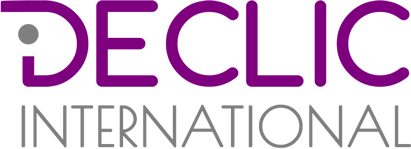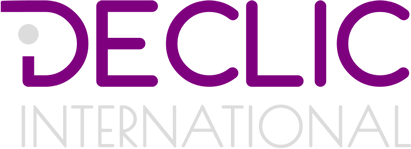11 habits to navigate effectively cross-cultural differences (Part 3 of 3)

This is the third and final part of a three-part blog series that explores cultural diversity: key concepts, barriers and enablers. I’m focusing on what you need to know and to do to avoid cultural misunderstandings and navigate nimbly cultural differences.
The leadership habits described below follow the Inclusive Leadership Propeller Model©. This model empowers business leaders and managers to navigate human differences smoothly, by consistently applying three skills: fairness, empathy, and proactivity. More information about it in my book “Succeed as an inclusive leader –Winning leadership habits in a diverse world.”
Eleven leadership habits to navigate effectively cross-cultural differences
Fairness – Are you being fair?
1- Don’t stereotype individuals based on their nationality
Individuals are unique; you can never predict a person’s behaviour based on his or her nationality. Besides, nobody likes to be treated like a cultural stereotype.
2- Give everyone a chance to contribute
In all teams, there’s a risk that the more extrovert colleagues monopolise the discussions. This risk grows in cross-cultural teams because some cultures are more vocal than others and some people might be more fluent speakers than others. Here are some tactics you can use: go around the table (or conference line/video chat screens) at least once so that everyone has a chance to speak; circle back to the quiet people after a meeting; ask people to jot down ideas anonymously before you open the debate.
3- Monitor assignments, evaluations, and promotions by nationality
This will help you prevent biases towards those who are based in headquarters, are more fluent in English or are closer to you culturally.
Empathy – Are you treating others as they’d like to be treated?
4- Educate yourself about cross-cultural differences and similarities
This can help you avoid cultural faux pas, make sense of other’s behaviours, and create connections at the same time. You can do this through researching but also by asking expats and most importantly, by asking people themselves about their own culture. You can say, “This is how I give feedback in my culture; how does it work in yours?” Asking questions is a good icebreaker. People like to talk about their own cultures, and with the talking comes understanding and connection. Use this information only as a starting point, and be open to deviations from the norm. Be mindful of differences but don’t obsess over them. Sometimes culture matters; sometimes it doesn’t.
5- Find out the rationale behind unfamiliar behaviours to you
When a behaviour doesn’t make sense to you, avoid being judgmental. For the people behaving in that way, there’s certainly a rationale. It’s up to you; find it out. Figure out which underlying values are causing a problem (more details about differences in cultural values in my previous article). And ask people. State the facts, tell your story, and ask for the other person’s version. Remember my boss whose super concise emails hurt my feelings? He simply didn’t want to waste my time, out of respect for me.
6- Flex your style
Just knowing about a difference conceptually is not enough. You need to practice new behaviours in real situations. For example, being more directive with a team that doesn’t feel comfortable with a more participate leadership style, delivering more positive feedback in a culture that values encouragement. Play with adaptations; see how people react.
7- Speak plainly and not too fast
So that everyone can understand you, especially during virtual meetings. But please don’t slow down too much as you may sound patronising. My husband had a Parisian friend who used to speak very slowly with me. Her intentions were positive; she was mindful of the fact that French wasn’t my first language. But she made me feel a bit stupid. Sadly, it’s better to avoid jokes, slang, or cultural references that might be confusing to a non-native speaker. I just facilitated a workshop on cross-cultural management, and for a few participants, the recurrent jokes that they couldn’t fully understand made them feel excluded. Recapping key points orally and in writing at the end of meetings can also be helpful.
8- Respect different time-zones
Try to find meeting times that are respectful of everyone’s work life integration, rotate meeting time if that’s not possible. Also, respect local holidays and people’s vacation time. This sounds so basic, yet many people are invited to participate in meetings during a bank holiday for them. They either participate in it or miss a meeting where important decisions might have been taken. In some countries, people are not entitled or expected to take a lot of vacation; in others, taking three weeks off in a row is common.
Proactivity – Are you accelerating positive change?
9- Raise your team’s cultural awareness
Share with your team what you’ve learned in this chapter, encourage intercultural mentoring, use national holidays to trigger cultural conversations. For instance, during a team meeting close to Chinese New Year, you could ask a Chinese team member to explain to others what it means and how he/she celebrates it. Some team members might need to be coached by you to understand their colleagues’ behaviours and to adapt to different cultural expectations.
10- Build your team’s emotional bonds
When people know each other better, they trust each other more, they collaborate more. That’s why trust is the single most important characteristic of a high-functioning team. And when people trust each other in cross-cultural teams, cultural differences don’t matter as much. Organise social activities, schedule time for unstructured social chats at the end or at the beginning of meetings; ask for people to give a virtual tour of their offices, to share their bio’s; connect team members who you know have things in common (two astronomy lovers, for instance).
11- Invest in languages
Encourage your team members who struggle to speak the common language (usually English) to improve their language skills. You can also learn a few words (hello, thank you, goodbye) in the languages of your team members; they will feel valued. I do this whenever I go to a foreign country. I can tell you it does make a difference in the way people relate to you.
***
Thanks for taking the time to read this post. Let me know what you think about it in the comments below.
This is an excerpt of my book “Succeed as an inclusive leader – Winning leadership habits in a diverse world”.
Looking for effective ways to accelerate your progress towards inclusion? Register for the best train the trainer training on inclusive leadership. Click HERE to find out more about it.
ABOUT THE AUTHOR
THAIS COMPOINT is a top global specialist in inclusive leadership. Her achievements have been acknowledged with 15 awards world-wide, including the prestigious “2019 Top Global Diversity and Inclusion Leaders Award”. She’s a speaker, author, facilitator, and consultant with 19 years of experience. Thais spoke at three TEDx events, is the author of “Succeed as an inclusive leader”, the creator of the Inclusive Leadership Global Conference, and the host of the podcast “The Inclusiveship Show”. Thais is also the founder and CEO of Déclic International, a global boutique consultancy that she founded after leading the inclusion & diversity strategies of three Fortune 500 companies: Vinci, Coca-Cola Enterprises and Cisco. Déclic has served clients in more than 10 industries, including organisations such as Barclays, Pfizer, Allianz and Accor.



